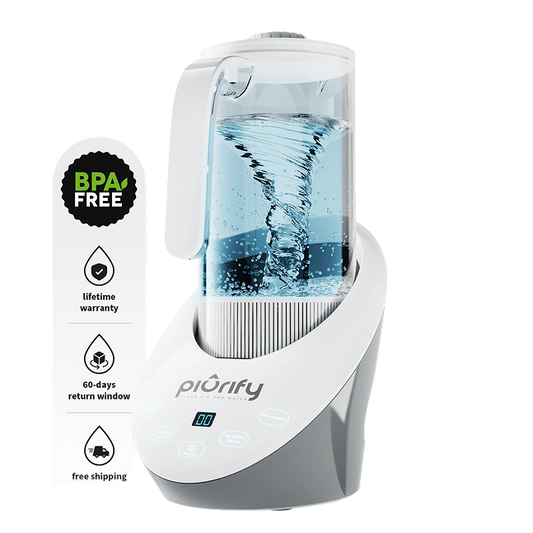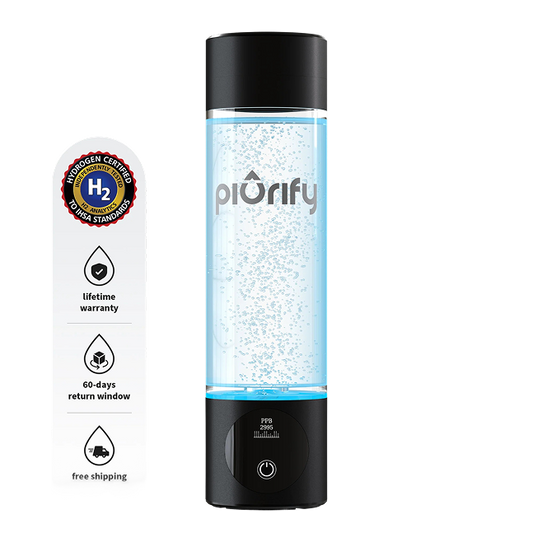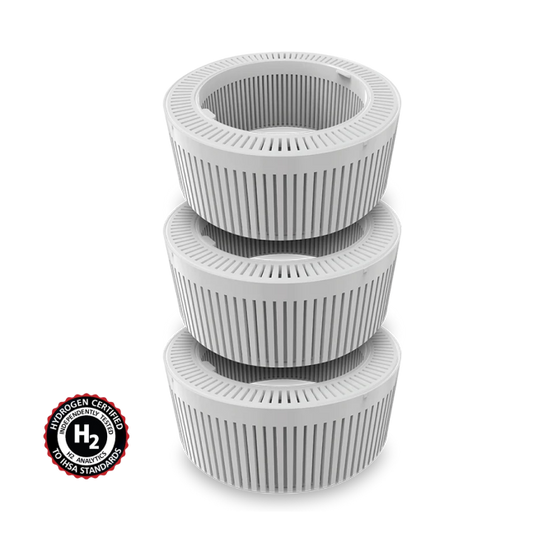3 Dehydration Pregnancy Symptoms and How to Fight Them
Pregnancy can be a magical time for women as they experience the wonder of growing a human and all of the unforgettable milestones along the way. While many find it exciting, some pregnant women find it less so, especially if they are dealing with unpleasant physical side effects.
Taking care of yourself and staying on top of your health is more important than ever during pregnancy. Getting enough rest, eating well, and getting proper hydration are just a few ways to stay healthy. Here’s what you need to know when it comes to dehydration pregnancy symptoms and how to stay on top of your hydration needs.
Main Symptoms of Pregnancy Dehydration
Dehydration occurs when you aren’t drinking enough fluids to keep up with your body’s requirements. Some pregnant women find it difficult to stay hydrated due to common pregnancy symptoms, such as increased vomiting or sweating.
In some serious cases, dehydration can cause your blood to thicken, which makes your blood pressure increase. It can also cause blood volume to temporarily decrease until you replenish your fluids.
Dehydration during pregnancy can lead to complications for both you and your baby, such as low amniotic fluid, neural tube defects, and difficulty producing sufficient breast milk. As these are quite serious, here are some symptoms of dehydration in pregnancy to be on the watch for.
1. Increased Thirst and Dry Mouth
One of the first things dehydration symptoms in pregnancy that you may recognize is increased thirst accompanied by a dry or sticky mouth. These signs indicate a mild level of dehydration. Drinking plenty of fluids when you start to notice these common signs will help you hydrate again. Start drinking water as soon as you can.
During pregnancy, your body uses water to form the placenta, providing your baby with the essential nutrients it needs. Later in pregnancy, it helps to form the amniotic sac. Because of this, it’s easier to lose liquids faster, even if you think you’re drinking enough water.
2. Overheating and Excessive Sweating
Feeling overheated or sweaty is another sign that may be overlooked when it comes to dehydration during pregnancy (CDC). Feeling a bit warmer than usual is normal when you're pregnant, so it’s easy to confuse this with not getting enough water. Serious and prolonged overheating, especially during the first trimester, can possibly lead to birth defects.
If you feel like you’re too hot, move to a cool area and start sipping on some water so your body can start regulating its temperature again.
3. Fatigue and Weakness
Feeling dizzy or nauseous when pregnant is a common symptom for many women, especially during the first trimester. Most women chalk up nausea, fatigue, and vomiting during pregnancy to morning sickness. However, feeling weak or tired can actually be a symptom of dehydration.
In fact, fatigue and weakness can actually signal severe dehydration, in which case it might be necessary to seek out guidance from your healthcare provider.
How to Combat Dehydration During Pregnancy
When you’re pregnant, you’ll need to drink more water than you usually do to compensate for all of the functions that water is doing inside your body during this time. While you might have heard that eight glasses a day is the magic number, this isn’t true for everyone. Factors like activity level and location play a part, as well as pregnancy.
Pregnant morning sickness can increase your chances of dehydration due to the severe vomiting that some women experience. While some women don’t have this symptom, women with hyperemesis gravidarum (HG) are often dehydrated. Many women experience some symptoms of dehydration in early pregnancy, but HG might last throughout the whole pregnancy.
Thankfully, your body is good at sending you signals when you’re dehydrated. But the best way to stay on top of your hydration game is with a good offense. Having a hydration plan can help you to make sure you’re getting enough fluids throughout the day and your pregnancy. This ensures you and your baby stay as healthy and as comfortable as possible.
Set a Daily Water Intake Goal
Setting a water intake goal is the first step you can take to make sure that you’re getting enough fluids. Even though you get some water from the food you eat and other beverages, there are many health benefits to getting in the habit of drinking water. Setting a routine, like drinking a glass first thing in the morning or having one with each meal, can keep you on track with your hydration goals.
So can tracking your water. There are many ways to do this, like using an app or buying a bottle with the volume clearly marked. You can even use pen and paper to keep a log of how much water you drink throughout the day. If you find it hard to drink plain water, try zesting it up with some fresh fruit for flavor.
Monitor Urine Color for Hydration Levels
Taking a look at your urine is an easy way to keep track of your hydration. Ideally, your urine output should be a pale yellow color — or even clear — when you’re properly hydrated. It shouldn’t have any smell, and you should be able to produce a good amount.
Dark urine that may have a smell or come in a small quantity is a sign of dehydration. It’s your body’s way of telling you that it’s time to drink water now before you become very dehydrated, which can cause a plethora of unwanted side effects.
Fight Pregnancy Dehydration With Piurify
Stop dehydration in its tracks with the right hydration plan, which includes hydrogen water from Piurify. Our products make it easy to get all the benefits of water as nature intended it, without all of the stuff you don’t want. Hydrogenated water is enriched with minerals and antioxidant hydrogen molecules, which keep you thoroughly hydrated and can give your overall wellbeing a boost.
Reach out to Piurify now to learn more about how our products are changing the hydration game so that you can fight pregnancy dehydration in a healthy way.


